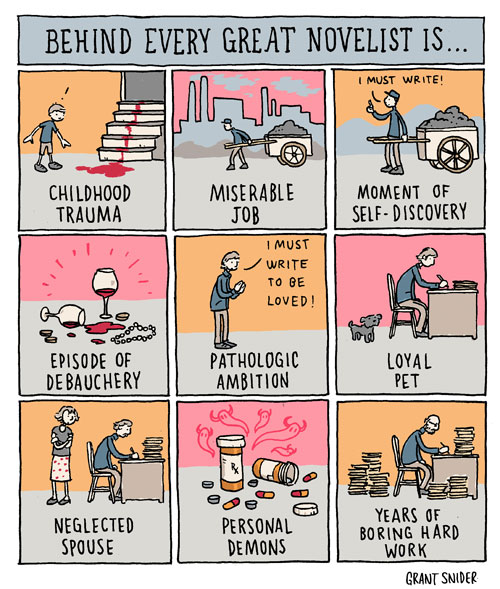Or, so you wrote 50,000 words. Now what?
I am being honest when I say how easy NaNoWriMo was for me this year. Of course, saying it was easy is a relative claim, but the fact is that this latest 50,000 words came out with less struggle than I have ever experienced writing anything long or short. I suppose that means I have somehow matured as a writer, but the reality of that notion remains to be seen.
The reason I think that is because the endeavor this latest story represents only begins with the effort of NaNoWriMo. It turns out that, as a writer, I am far more like a painter adding layers to a painting than I am a sculptor carving away stone or clay. What this means is that the story I have now still needs a lot of work to be the kind of story you’d expect to see in a book.
What does that mean? Well, first, I’m going to let it just sit for a bit. That may mean several days or several weeks, but after having expended so much effort, I find that it is good to just let the story age some before I do anything else with it.
Second, I have to compile the writing I’ve done into a readable format. It turns out that I wrote the entire story as notes in Evernote. This is basically that modern equivalent of writing a story on note cards, and it gives me the advantage of being able to easily reorder scenes as I go through my first rewrite process.
Third, I will do my first edit/rewrite. I know a lot of authors like to print out and mark up copies of their rough draft, but as I’ve noted, I tend to write like a painter rather than a sculptor, so my rough draft tends to be a lot more like a very long outline than a true story. Once I’ve completed that rewrite, I will print the story out, read it through, then mark it up.
Fourth, I will take that marked draft and type the whole story back into a new document. Yes, that means I will write the entire story again, using my draft as the source. I know a lot of people wonder why I would expend that much effort, but what I have discovered is that typing the story again forces me to revisit and rethink every single word. It is the best editing tool I have ever encountered for the way I write. Depending on the story–this happens often with short fiction I write–I could end up repeating this process more than once.
Along the way, I may show my efforts to several people or groups of people to get comments on what they think about the story as it progresses. I find that it is good to get those views along the way because other people tend to notice the plot holes I’m ignoring or other issues the story might have for a reader.
Finally, once I’ve edited and rewritten, and tweaked enough, I will take the plunge to try to get the story published. I’ve never reached this step with any long fiction I’ve ever written, and that’s saying something given that I have at least four stories somewhere along the process I describe above.
So, there is a brief outline of what happens after NaNoWriMo. Hopefully, this year’s success will prove as easy to see all the way through as it was to write for the first time.
DLH


